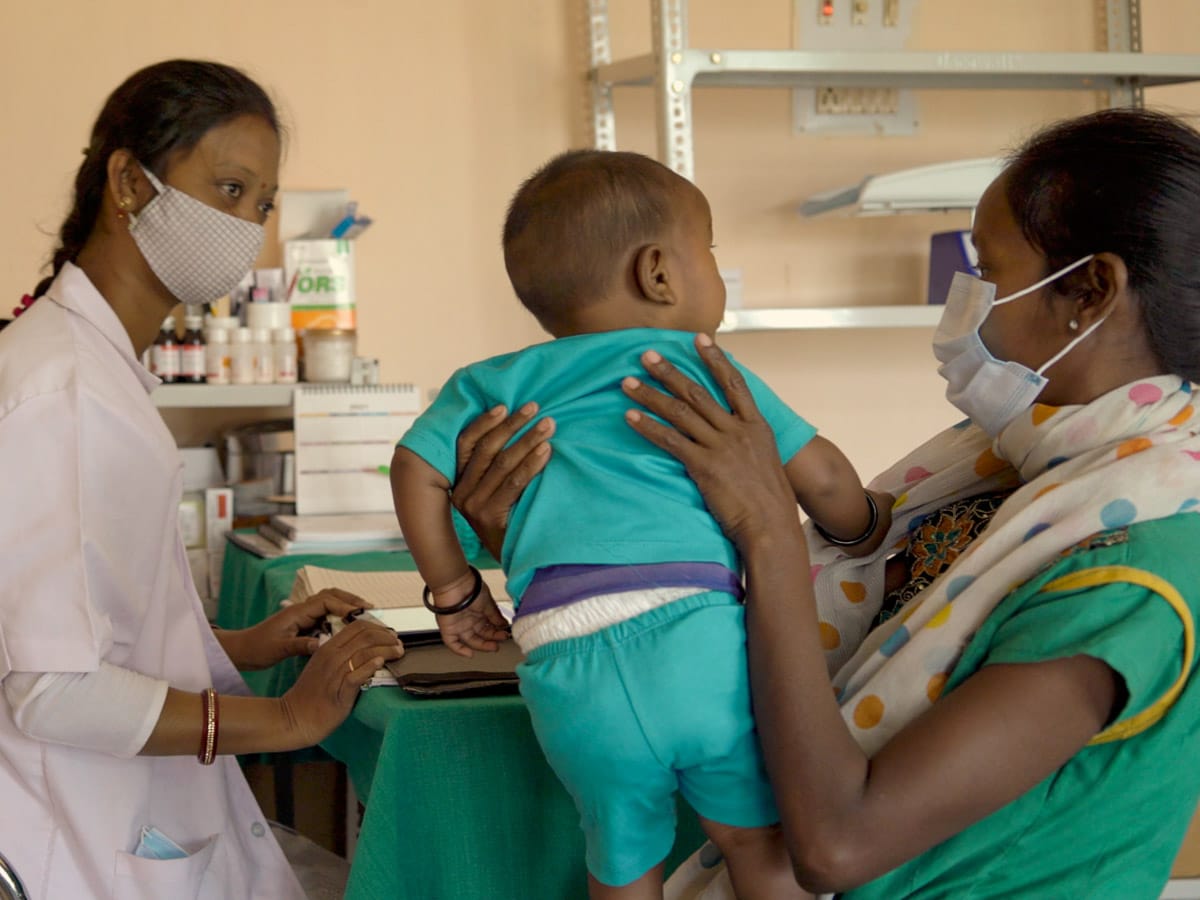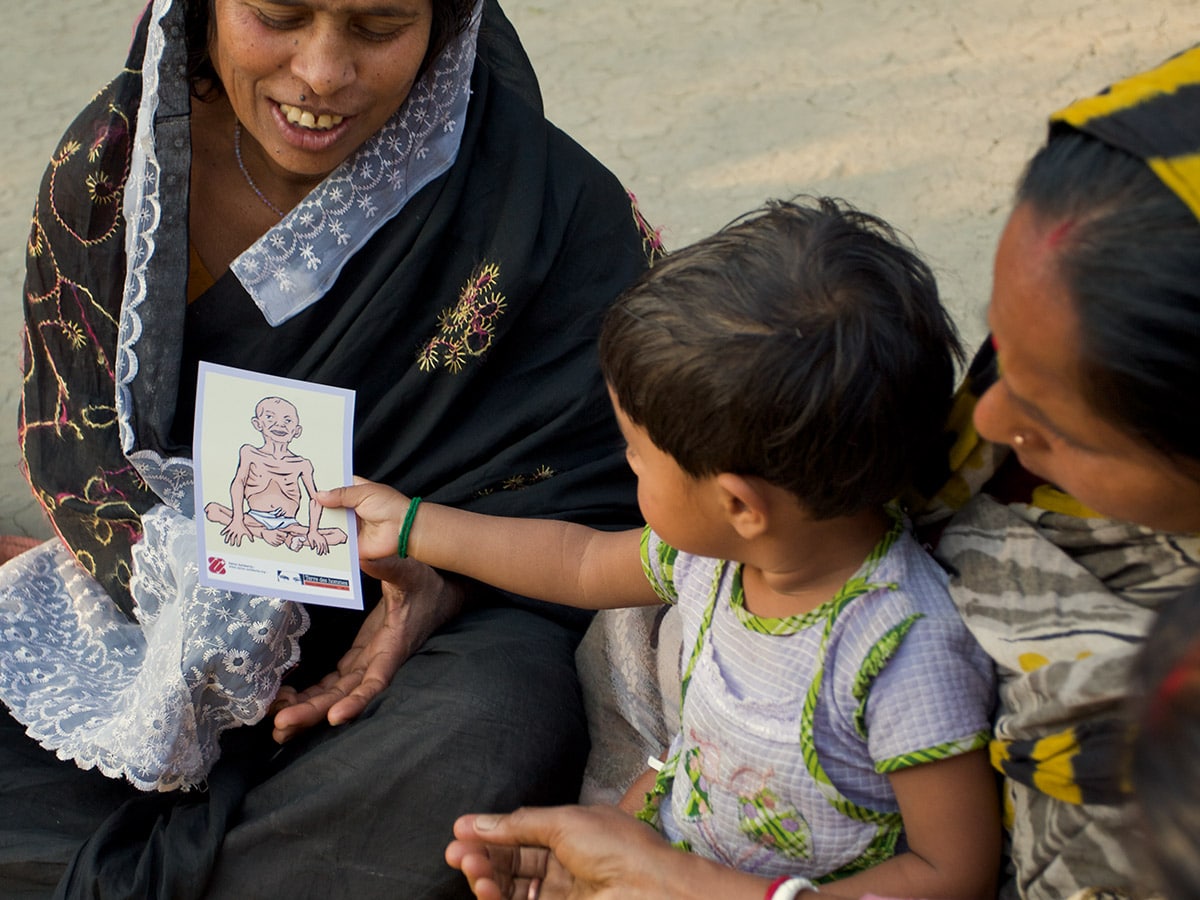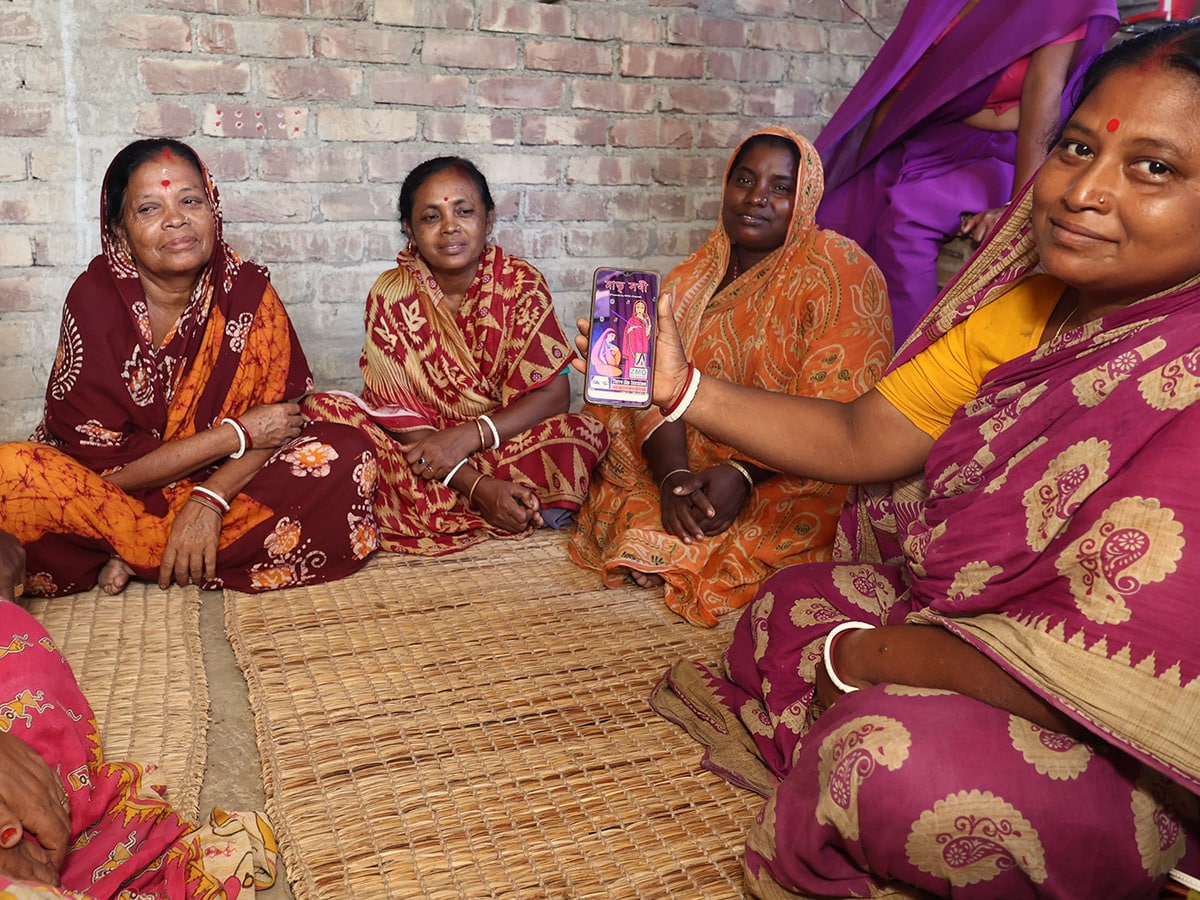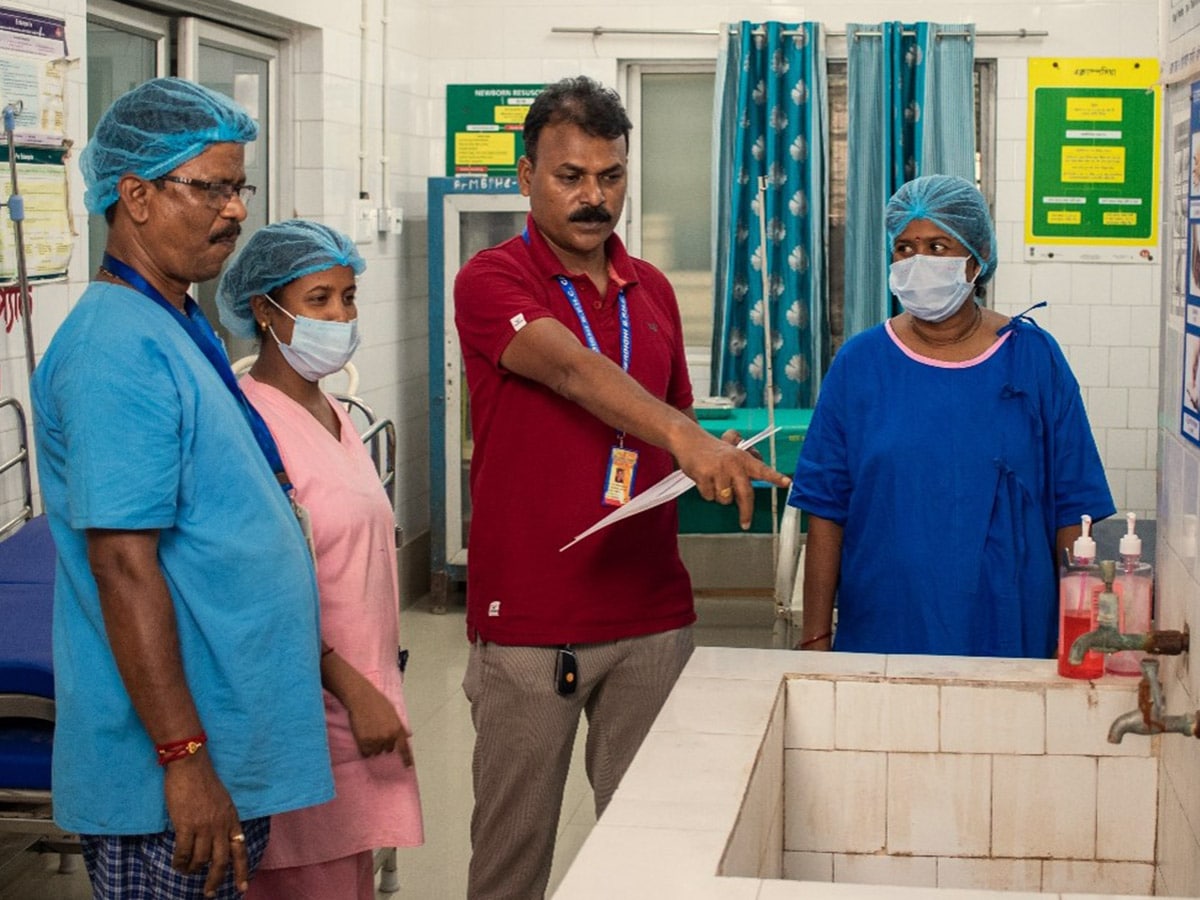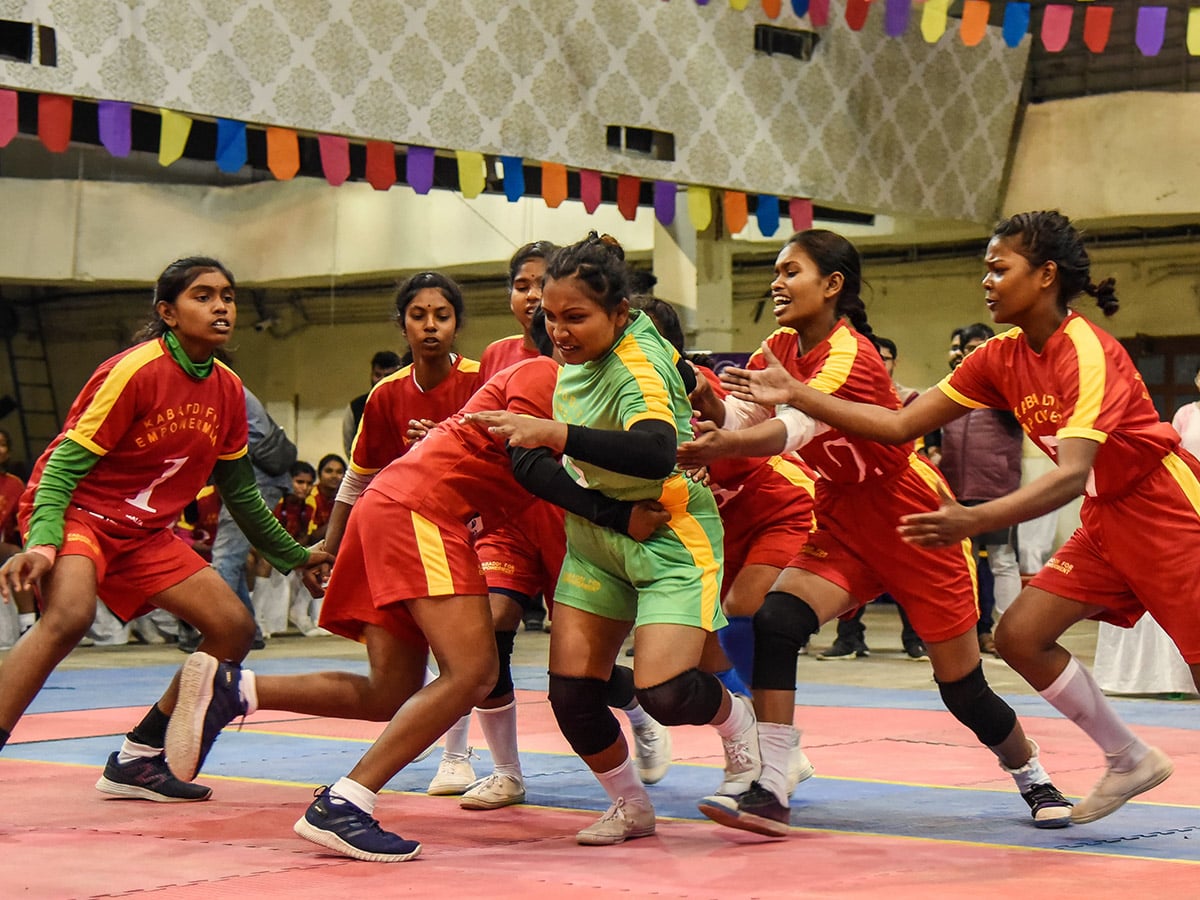Tdh initiated the Integrated e-Diagnostic Approach (IeDA) Programme in 2010, to reduce child mortality by improving health care workers’ adherence to the Integrated Management of Childhood Illness (IMCI) protocol, which was designed by WHO and UNICEF for children under 5 years of age. The software is installed on digital tablets used during clinical consultations for children under five years of age. At the end of the consultation, and following the analysis of the signs, symptoms and test results, a precise diagnosis is proposed to the health worker who then proposes the appropriate treatment. The clinical exam data is saved and sent to a central server which also feeds the national health information system.
The initial pilot project was to test the IeDA approach in India, with the goal of improving the quality of IMNCI services for under 5 children in HCFs of Jharkhand. Under this project, Tdh was able to contextualize IeDA to be used by Auxiliary Nurse Midwives (ANMs), Community Health Officers (CHOs) and Medical Officers (MOs) to carry out all IMNCI activities taking place at the facility, as per national IMNCI Operational guidelines.
IeDA was introduced in Jharkhand, India in 2020, and by 2022 IeDA was included in the Jharkhand State PIP budget. Both the State and Central Government have committed to invest in IeDA, with the aim to transition the digital strategy to scale. By November 2023, IeDA has been used by 475 frontline HCWs with plans to scale IeDA to over 2000 HCFs in Jharkhand by 2024.

